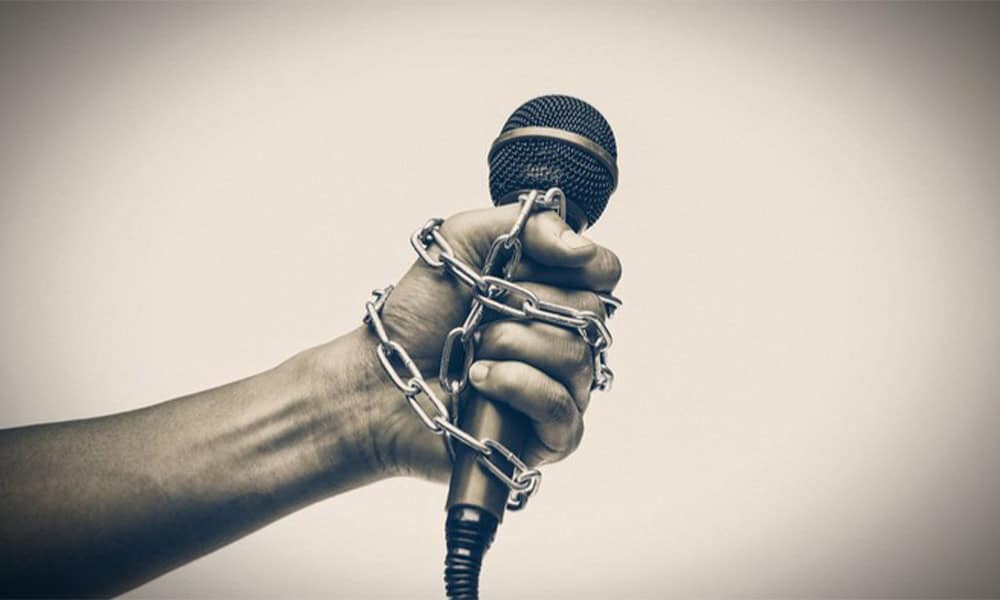Journalism in Costa Rica and across Central America faces an increasingly hostile environment, driven by polarizing rhetoric and systematic attacks from government authorities, according to a new report released by the Freedom of Expression and Right to Information Program at the University of Costa Rica (PROLEDI UCR) and the Heinrich Böll Foundation.
The third annual Report on the State of Freedom of Expression and the Security of Journalistic Practice in Central America, identifies Costa Rican President Rodrigo Chaves Robles as a central figure in the erosion of press freedom in the country. The report states that Chaves’ “stigmatizing and confrontational discourse” toward media outlets and public institutions critical of his administration has fostered an atmosphere of intimidation, limiting journalists’ ability to work freely and undermining public trust in the press as a democratic cornerstone.
“President Chaves’ conflict with journalists and critical media continues to intensify and now extends to autonomous institutions like the Supreme Court of Justice, the Attorney General’s Office, the Comptroller General’s Office, and opposition parties in Congress,” the report notes. Chaves has repeatedly accused these entities of obstructing his governance and efforts to reform the country, a narrative that has fueled tensions since he took office in May 2022.
The study, which analyzes conditions in Costa Rica, El Salvador, Guatemala, Honduras, and Nicaragua, warns that the region is becoming “increasingly dangerous” for journalists. Co-author Óscar Jiménez Alvarado emphasized that attacks on the press are not isolated incidents but part of “systematic strategies promoted by those in power.” He pointed to a pattern of stigmatizing discourse, digital violence, and direct threats orchestrated by presidents, lawmakers, and political operatives across Central America.
In Costa Rica, the report singles out the government as the primary threat to press freedom, a distinction shared with El Salvador under President Nayib Bukele. This marks a significant shift for Costa Rica, long regarded as a regional leader in democratic stability and press freedom. The country’s ranking in the Reporters Without Borders (RSF) World Press Freedom Index has slipped from 8th in 2022 to 26th in 2024, reflecting growing challenges under Chaves’ administration.
The report also raises concerns about the upcoming 2026 presidential election, suggesting that the electoral process to choose Chaves’ successor could exacerbate tensions. “The conflict may intensify this year as the campaign begins,” the document warns, noting that political polarization and attacks on the press could deepen in the lead-up to the vote.
Across the region, the study documents a broader decline in freedom of expression and press safety. In Nicaragua, over 120 journalists have fled into exile since 2018, while in Guatemala, the arrest of El Periódico founder José Rubén Zamora in 2022 exemplifies the use of spurious legal charges to silence critics. Honduras has seen a rise in journalist assassinations, and El Salvador’s government has been accused of deploying spyware against media workers.
In Costa Rica, specific incidents underscore the report’s findings. In 2023, the Constitutional Chamber ruled that Chaves had violated press freedom through repeated verbal attacks on outlets like La Nación and Teletica. Journalists have reported increased online harassment, including death threats from pro-government trolls, and a 2022 government directive to withhold state advertising from critical media outlets was confirmed by leaked audio recordings in December 2023.
Giselle Boza Solano, PROLEDI UCR coordinator, stressed the report’s role in monitoring these trends. “The state and political authorities, rather than safeguarding this right, are its primary violators,” she said during a virtual presentation of the findings. The study also highlights a rise in gender-based violence against women journalists, a trend that has worsened since the last report.
Despite these challenges, Costa Rica retains a robust legal framework for press freedom, bolstered by a new public information law signed in November 2024. However, experts warn that without addressing the executive’s hostility, the country risks further backsliding. “These attacks seek not only to discredit the press but to generate a cascade effect of fear and self-censorship,” Jiménez said.
The Inter-American Press Association (IAPA), following a visit to Costa Rica, echoed these concerns, citing “constant verbal attacks” by Chaves and the manipulation of state advertising as tools of intimidation. The organization urged the government to uphold democratic principles as the election nears.






